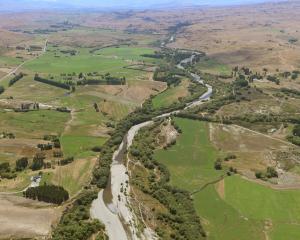A Lincoln-based Landcare Research scientist is urging those who carry out rabbit poisoning programmes to consider also getting rid of the feral cats that feed on them.
In an article published in a recent Landcare newsletter, wildlife ecologist Dr Al Glen said rabbits ''should not be controlled in isolation''.
''Rather cats should be controlled at the same time.''
The Otago Regional Council announced on Wednesday poison needed to be laid on 8000ha of rabbit-prone land in the Wanaka area.
However, council director regional services Jeff Donaldson told the Otago Daily Times yesterday there were no plans to also target cats.
''We don't target cats in our operations, as they are not a declared pest in Otago.''
Dr Glen said he accepted councils had reasons, including budget constraints, for not dealing with feral cats.
''It wouldn't be fair to necessarily criticise them for not doing it but certainly if they can do it they ought to consider it.''
Dr Glen and colleagues have been involved in the difficult job of counting rabbit and feral cat populations in Otago and the Mackenzie Basin.
The study confirmed rabbit numbers contributed to ''inflated numbers'' of feral cats.
A consequence of increased cat numbers was added pressure on native species.
And while the study showed cat numbers declined as rabbit numbers went down, Dr Glen warned in the newsletter ''some caution'' was required when reducing rabbit numbers suddenly.
''Sudden reductions in rabbit numbers can increase predation on native species in the short term.
''Faced with a shortage of rabbits, cats may simply eat more native prey.
''Because such prey are generally less abundant than rabbits, cat numbers will eventually decline, but not before they have eaten many native animals.''
He considered that by targeting both rabbits and cats in control programmes simultaneously, both species ''can be suppressed over large areas for long periods''.
''This should have considerable benefits for pasture and for native vegetation and fauna.''
Dr Glen said it was expensive to target feral cats and the need to control them depended on whether native species needing protection were present.
''We certainly hope that people like regional councils will ... at least consider the idea.
''Whether that does realistically lead to them changing the way they do things is another question.''
Mr Donaldson said cats ate freshly poisoned rabbits and that helped control their numbers.
''I don't believe that feral cats will be a major concern requiring separate control in the rural Central Otago environment in the near future.
''But council staff will continue to monitor the presence of cat and ferret populations.''












